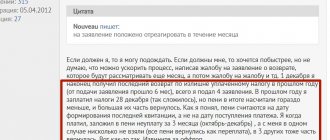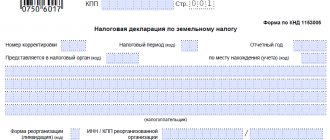Why is the issue of collecting insurance premiums accrued by the fund relevant in 2021?
Since 2021, insurance premiums have changed administrators and are subject to all the requirements of the Tax Code of the Russian Federation, including regarding inspections. Such checks are now carried out by tax authorities. But this applies only to those contributions accrued after 2016.
Read about what has changed in insurance premiums with their inclusion in the Tax Code of the Russian Federation in the article “Tax Code and insurance premiums in 2017” .
With regard to accruals made before 2021, checks are still carried out by the funds (Article 20 of the Law “On Amendments...” dated July 3, 2016 No. 250-FZ). And the rules for these checks are still established by the law “On Insurance Premiums...” dated July 27, 2009 No. 212-FZ, which has lost its force since 2021.
However, the fund itself does not have the right to collect additional accrued amounts from 2021. This function has been completely transferred to the tax authorities, and the procedure for collecting insurance premiums is now subject to the rules established by Art. 46-48 Tax Code of the Russian Federation.
Tax collection procedure
If a person does not submit a return on time and is late in paying tax fees, penalties will be charged for the amount of the delay. Also, an official notice is sent to his residence address from the tax service with a reminder of the need to repay the debt. Article No. 52 of the NKRF sets aside a period of one month for sending a notice from the date of the payment deadline. After receiving an official letter from the tax service, the payer has a month to repay the resulting debt. An exception is if the tax notice specifies a different deadline.
However, even after receiving a warning, not all taxpayers rush to make payments. But you should not assume that fees not paid on time will simply be forgotten. Article No. 75 of the tax legislation provides for the following procedure for calculating penalties in relation to unpunctual citizens. The amount of the penalty is calculated based on the amount of debt multiplied by the days of delay and by 1:300 of the refinancing rate established by the Central Bank of Russia. The payer is also notified of the accrual of penalties by an official letter.
In cases of malicious tax evasion, the Federal Tax Service may impose fines. Their standard amount is 20% of the total amount of debt generated. Article No. 122 of the NKRF provides for an increase in the fine to 40% if the intentional nature of non-payments can be proven. Fines are assessed if the amount of tax is calculated in accordance with the provisions of tax legislation, and the defaulter was sent notifications of the need to repay the debt within the time limits specified by the regulations.
Sequence of collection of unpaid amounts of insurance premiums from 2021
In the text of Art. 46-48 of the Tax Code of the Russian Federation, dedicated to the issues of collection of tax payments, from 2021 a mention of insurance premiums has been added. Thus, their content is extended to insurance premiums.
The description given in Art. 46-48 of the Tax Code of the Russian Federation, clearly defines the following sequence of collection:
- funds in ruble accounts;
- funds in foreign currency accounts;
- electronic money;
- cash (for an individual paying contributions);
- property.
The transition to each subsequent stage is possible only when the actions of the previous stage failed to repay the arrears. Therefore, collecting it from the property, bypassing the stages of withholding unpaid contributions from the payer’s funds, is impossible.
Read about what the procedure for collecting insurance premiums from funds has become since 2021 in the material “Art. 46 Tax Code of the Russian Federation (2017): questions and answers" .
Until 2021, a similar point of view was expressed by judicial bodies that considered cases concerning the sequence of collection of unpaid contributions by funds.
Collection of tax debts
One of the most significant actions during tax control, along with identifying arrears in taxes and insurance contributions, is the subsequent collection from the taxpayer by the tax authority of the corresponding debt for arrears, penalties and fines.
The current tax legislation provides that the collection of the above additional assessments can be made in two ways: in the form of an undisputed collection of additional accrued amounts and by filing a corresponding application with the tax authority in court.
Indisputable collection of tax debt by the tax authority from the taxpayer
The procedure for collecting debts on taxes, insurance premiums, penalties and fines begins with sending a tax payment request to the taxpayer. As a general rule, it is sent no later than three months from the date of discovery of the arrears, and if non-payment is revealed as a result of a tax audit, within 20 days from the date the final decision enters into force. The taxpayer is obliged to pay the debt within eight working days from the date of receipt of the request. Otherwise, the tax authority will begin to forcibly collect the debt.
Currently, the Government of the Russian Federation has increased the deadline for sending a claim by six months, which follows from paragraph 7 of the Decree of the Government of the Russian Federation dated 04/02/2020 N 409. Consequently, the specified period will be, in particular, nine months from the date of discovery of the arrears or six months and 20 days from the date of entry into force of the relevant decision made by the tax authority based on the results of the audit.
The provision on the extension of deadlines is urgent and is valid until December 31, 2020 (clause 5, clause 3, article 4 of the Tax Code of the Russian Federation).
It should be taken into account that, first of all, the tax authority will foreclose on the taxpayer’s funds in the bank. And if these funds are not enough, the penalty will be applied to the taxpayer’s property (clause 7 of article 46, clause 1 of article 47 of the Tax Code of the Russian Federation).
Collection of debts on taxes, insurance premiums, fines and penalties at the expense of the taxpayer’s funds is carried out by the tax authority in the following order:
— the tax authority makes a decision on collection and sends an order to the bank to write off funds in an indisputable manner;
— the bank executes the order of the tax authority and debits funds from the taxpayer’s bank accounts, directing them to the budget.
The procedure for collecting the relevant amounts consists of the following steps taken by the tax authority:
— the tax authority makes a decision on the collection of additional tax assessments in accordance with paragraphs. 3, , 10 tbsp. 46 of the Tax Code of the Russian Federation no later than two months after the expiration of the deadline for fulfilling the demand for payment, if the total amount of arrears, penalties and fines specified in the demand exceeds 3,000 rubles.
If the specified period is missed, collection of additional accruals is possible only in court. A decision made by the tax authority after missing a deadline is invalid and cannot be enforced, as follows from clause 3 of Art. 46 Tax Code of the Russian Federation;
- no later than two months from the day when the total amount of arrears, penalties and fines exceeds 3,000 rubles, if the demand was initially raised for an amount less than 3,000 rubles, but within three years from the date of expiration of the deadline for its execution, the total amount to be recovered from the organization, exceeded 3,000 rubles;
- no later than two months from the day when three years have passed from the end of the deadline for fulfilling the earliest payment requirement, - if the amount of arrears, penalties and fines to be collected from the organization does not exceed 3,000 rubles. within the specified period;
In the current conditions, the Government of the Russian Federation has increased the deadline for making a decision on collection by six months, which follows from paragraph 7 of Resolution of the Government of the Russian Federation dated April 2, 2020 N 409.
The tax authority communicates this decision to the taxpayer organization within six working days after it is made and sends an order for write-off and an order for the transfer of electronic funds to the bank.
It must be borne in mind that after making a decision on collection, the tax authority has the right to suspend the taxpayer’s transactions on bank accounts and electronic money transfers (clause 8 of Article 46, clauses 1, 2 of Article 76 of the Tax Code of the Russian Federation).
In addition, as stated above, if the funds in bank accounts are not enough to pay additional assessments, the tax authority has the right to seize the taxpayer’s property (clauses 1, 3 of Article 77 of the Tax Code of the Russian Federation).
In accordance with paragraph 5 of Art. 46 of the Tax Code of the Russian Federation, the bank writes off the taxpayer’s debt from those accounts and in the amounts that the tax authority indicated in the instructions for write-off.
First of all, the bank will write off funds from the taxpayer’s settlement (current) ruble accounts. If there are insufficient funds in these accounts, debits will be made from foreign currency accounts, and then from the taxpayer’s precious metals accounts. Lastly, the recovery is applied to electronic money (clauses 5, 6.1 of Article 46 of the Tax Code of the Russian Federation).
It is necessary to note that the bank, on behalf of the tax authority, will be obliged to sell foreign currency and precious metals from the taxpayer’s accounts and repay the debt from the received amounts in rubles. The costs of this operation are paid at the expense of the taxpayer (Clause 5, Article 46 of the Tax Code of the Russian Federation).
It should be borne in mind that funds from deposits can only be written off after the end of the deposit period (Clause 5, Article 46 of the Tax Code of the Russian Federation). Consequently, in this case, the bank must wait until the end of the deposit period, and only then write off funds in favor of the budget.
If there are sufficient funds in the taxpayer’s account, the bank will write off the funds in the following order and terms:
- from ruble accounts of the taxpayer - no later than the next business day from the date on which the bank received the order from the tax authority;
- from foreign currency accounts and from accounts in precious metals - no later than two business days from the date on which the order was received;
The procedure for writing off funds from taxpayer accounts is regulated by both civil (Article 855 of the Civil Code of the Russian Federation) and tax legislation (Article 46 of the Tax Code of the Russian Federation). Based on this, if claims of the first and second priority are presented to the taxpayer’s accounts, the bank is first obliged to pay off these claims, and then will fulfill subsequent demands of the tax authority.
The bank will execute the order to write off funds until it is suspended or revoked by the tax authority (clause 4.1 of Article 46 of the Tax Code of the Russian Federation).
For example, the effect of an order for write-off may be suspended by a ruling of the arbitration court when the court takes interim measures (Article 91, Arbitration Procedure Code of the Russian Federation).
Cases in which the tax authority revokes unfulfilled instructions for write-off are specified in clause 4.1 of Art. 46 Tax Code of the Russian Federation:
— tax debt has been fully repaid;
— the taxpayer received a deferment or installment plan for the payment of taxes, penalties, and fines;
- the amount of tax, penalties, fines is reduced in the updated declaration sent by the taxpayer to the tax authority;
- amounts of arrears and penalties were recognized as uncollectible and written off;
— the relevant legal documents on the basis of which the tax authority carried out the relevant penalties were canceled or declared invalid in a judicial or administrative manner.
The tax authority must make a decision on the revocation of instructions. Otherwise, the taxpayer has the right to appeal the inaction of the tax authority, initially to a higher tax authority, and then to the court.
If the bank executes an order that is subject to cancellation, the funds debited from the taxpayer's account will be considered overcharged. The tax authority is obliged to return them and pay interest on the amount of funds collected in excess (clauses 1, 9, Article 79 of the Tax Code of the Russian Federation).
Collection of tax debts at the expense of the taxpayer’s property
If the tax authority was unable to collect the debt for taxes, insurance premiums, penalties and fines at the expense of the taxpayer’s funds in full, then the balance of such debt is subject to collection at the expense of the taxpayer’s property (clause 7 of Article 46, clause 1 of Article 47 of the Tax Code of the Russian Federation) .
For this purpose, the tax authority adopts two documents: a decision and a decree on collection. The decision of the tax authority on collection by virtue of Art. 12 of the Federal Law “On Enforcement Proceedings” refers to enforcement documents, which is also confirmed in paragraph 64 of the Resolution of the Plenum of the Supreme Arbitration Court of the Russian Federation No. 57 of July 31, 2013, which states that courts must take into account that, within the meaning of Article 47 of the Tax Code of the Russian Federation and paragraph 5 of Part 1 of Article 12 of the Federal Law of October 2, 2007 N 229-FZ “On Enforcement Proceedings”, the resolution of the tax authority on the collection of tax at the expense of the taxpayer’s property is an enforcement document.
Accordingly, based on the decision of the tax authority, bailiffs will carry out collection, applying it to the property of the taxpayer.
As stated above, the tax authority accepts two documents regarding the foreclosure of a taxpayer’s property: a decision and a resolution. The decision is made within one year from the date of expiration of the deadline for fulfilling the requirement to pay the tax.
As in certain previous cases, the Government of the Russian Federation has increased the deadline for the tax authority to make a decision on collection by six months (clause 7 of the Resolution of the Government of the Russian Federation dated 04/02/2020 N 409).
Thus, the decision to recover from the property can be made within one and a half years after the expiration of the deadline for fulfilling the requirement for payment.
If the deadline for making a decision is missed, the tax authority can only collect the debt by going to court. A decision made after missing the deadline is invalid and cannot be executed (Clause 1, Article 47 of the Tax Code of the Russian Federation). In this case, the tax authority does not send a decision on recovery to the taxpayer.
All actions to recover property are carried out by a bailiff in accordance with the Federal Law “On Enforcement Proceedings”.
To do this, the bailiff performs the legal actions necessary for collection, in the following order, and within the following deadlines.
1) The bailiff issues a resolution to initiate enforcement proceedings within 3 days from the moment he receives the enforcement document (Clause 8 of Article 30 of the Federal Law “On Enforcement Proceedings”).
2) The bailiff sends a copy of the resolution to the debtor and the tax authority on the initiation of enforcement proceedings or a resolution in electronic form, signed with an enhanced qualified electronic signature, no later than the next working day from the date of its issuance (clause 17 of Article 30 of the Federal Law “On Enforcement Proceedings”) .
3) The bailiff carries out collection if within 5 days from the date of receipt of the resolution, the debtor does not repay the debt (clause 12 of article 30 of the Federal Law “On Enforcement Proceedings”).
4) The bailiff will seize and sell the property of the debtor-taxpayer at an auction, and with the proceeds from such sale, he will pay off the taxpayer’s debts to the budget, expenses for enforcement proceedings and the enforcement fee (Article 69 of the Federal Law “On Enforcement Proceedings”).
It should be borne in mind that the seizure and sale of the property of a debtor-taxpayer is no different from the seizure and sale of the property of other debtors who are in arrears in payment for goods (work, services) delivered to them.
The bailiff will seize property for sale in the order established by clause 5 of Art. 47 Tax Code of the Russian Federation:
— cash and non-cash funds and precious metals;
- property that the debtor does not use directly in production (paintings and design objects, gold jewelry);
— finished products and other material assets not intended for participation in production;
— raw materials, supplies, equipment and other assets used in production;
- property that the taxpayer transferred to other persons (for rent, for storage, etc.);
- other property.
The period for performing these actions is two months from the date when the bailiff received the tax authority’s decision on collection (Clause 4 of Article 47 of the Tax Code of the Russian Federation). This period does not include the time during which enforcement actions were not actually performed.
As practice shows, the specified two-month period is almost never met, since the collection procedure is a complex multi-stage mechanism associated with the identification, seizure and sale of the debtor’s property, in order to maintain a balance of interests of both creditors and the debtor.
The bailiff completes the enforcement proceedings and issues a resolution, copies of which are sent to the debtor and to the tax authority no later than the next working day from the date of its issuance (clause 6 of Article 47 of the Federal Law “On Enforcement Proceedings”).
The end of enforcement proceedings occurs when, for example:
- the debtor’s debt has been fully repaid;
— the claimant revoked the writ of execution;
— the debtor organization is liquidated or declared insolvent (bankrupt).
Collection of tax debt by the tax authority in court
The legislation on taxes and fees, which is, in fact, an administrative branch of law, is structured in such a way that the collection of the corresponding tax debts from legal entities is carried out in an indisputable manner. If the taxpayer does not agree with such a penalty, he has the right to challenge the non-normative acts of the tax authority, actions or inaction of their officials (Clause 12 of Article 21 of the Tax Code of the Russian Federation).
At the same time, in accordance with Art. 79 of the Tax Code of the Russian Federation, funds excessively collected by the tax authority from the taxpayer are subject to return with interest, which is compensation for the taxpayer’s losses.
However, there are exceptions to this rule on the indisputable collection of tax debts from the taxpayer. The tax authority collects such debt through the court in the following cases:
— from personal accounts of organizations, if the amount collected exceeds 5,000,000 rubles;
- from the accounts of interdependent companies in the cases provided for in paragraphs. 2 p. 2 art. 45 Tax Code of the Russian Federation;
— if the tax debt arose as a result of recharacterization of the transaction;
— when the debt arose as a result of an audit conducted by the Federal Tax Service of Russia;
- if the debt is collected from an individual who is not an individual entrepreneur.
- when the tax authority missed the deadline for collecting the debt at the expense of the taxpayer’s funds (clause 3 of Article 46 of the Tax Code of the Russian Federation);
- if the tax authority missed the deadline for collecting the debt at the expense of the taxpayer’s property (clause 1 of Article 47 of the Tax Code of the Russian Federation).
Before going to court, the tax authority must send the taxpayer a demand to pay the tax (Article 69 of the Tax Code of the Russian Federation).
According to Art. 69 of the Tax Code of the Russian Federation, the requirement to pay a tax is sent by the tax authority to the taxpayer, regardless of whether he is held accountable for violating the legislation on taxes and fees.
Thus, the tax authority informs the taxpayer about the amounts of arrears, fines and penalties available to him.
The demand for payment of tax must contain information about the amount of tax debt, the amount of penalties accrued at the time of sending the demand, the deadline for fulfilling the demand, as well as measures to collect the tax and ensure the fulfillment of the obligation to pay the tax, which are applied in the event of failure to fulfill the demand by the taxpayer.
The most frequently used case in practice is the situation related to the recovery of funds from the taxpayer, provided for under. 3 p. 2 art. 45 of the Tax Code of the Russian Federation, namely: from an organization or individual entrepreneur, if their obligation to pay tax is based on a change by the tax authority in the legal qualification of the transaction made by such a taxpayer, or the status and nature of the activity of this taxpayer.
The inclusion of this norm in the Tax Code of the Russian Federation is aimed at protecting the property rights of taxpayers - legal entities and entrepreneurs from unlawful claims of tax authorities related to the arbitrary qualification of transactions at the discretion of the tax authorities.
In other words, the tax authorities, when conducting tax audits, having changed the qualifications of transactions made by the taxpayer, do not have the right to collect from the taxpayer tax arrears, fines and penalties in an indisputable manner.
The legislator, while providing the taxpayer with additional protection when the tax authority carries out such re-qualification, considered that the grounds for such re-qualification of transactions and additional assessment of taxes to the taxpayer, accrual of penalties and prosecution are subject to special verification, carried out exclusively in court, since when the tax authority issues a non-normative act between the parties There is already a dispute related to the determination by the tax authority of the actual essence of the business transaction performed by the taxpayer.
These relations can be considered as some additional form of control over the legality of the actions of the tax authority when conducting a tax audit of legal entities, along with the administrative procedure for appealing non-normative acts of tax authorities.
The Tax Code of the Russian Federation does not contain the concepts of “legal qualification of a transaction” and “legal requalification of a transaction.” The legislator decided not to constrain himself in this case by any legal framework.
Based on Art. 431 of the Civil Code of the Russian Federation, we can conclude that the qualification of a transaction is the determination of its subject and essential conditions and, based on this, the determination of the type of obligation. The Constitutional Court of the Russian Federation, in Ruling No. 282-O dated December 16, 2002, explained that the legal qualification of transactions means clarifying the real relationship between the parties to the transaction (whether a purchase and sale, exchange, etc. was made). In this case, the type of transaction is established based on the subject of the agreement, its essential conditions and the consequences to which it will lead.
The Civil Code of the Russian Federation provides for the possibility of re-qualifying transactions, for example in Art. 170 of the Civil Code of the Russian Federation establishes the right to re-qualify a feigned or imaginary transaction. A sham transaction is one that is made to cover up another transaction. An imaginary transaction is a transaction carried out only for show, without the intention of creating corresponding legal consequences.
In a sham transaction situation, one transaction is passed off as another. In the case where there is an imaginary transaction, the completed transaction is unreal for tax purposes (Clause 1, Article 54.1 of the Tax Code of the Russian Federation).
When recharacterizing a transaction, the tax authority independently, at its discretion, selects the type of obligation that, as it seems to it, most corresponds to the given legal relationship, replacing the will of the parties with its own will.
The tax authority, reclassifying the transaction, determines which transaction should be completed instead of the one entered into by the parties.
In paragraph 3 of the Resolution of the Plenum of the Supreme Arbitration Court of the Russian Federation dated October 12, 2006 N 53 “ON ASSESSMENT BY ARBITRATION COURTS OF THE VALIDITY OF RECEIVING A TAX BENEFIT BY A TAXPAYER” it is stated that a tax benefit may be recognized as unjustified, in particular, in cases where for tax purposes transactions not taken into account in accordance with their actual economic meaning, or transactions not caused by reasonable economic or other reasons (business purposes) are taken into account.
Paragraph 4 of the Resolution also stipulates that a tax benefit cannot be recognized as justified if received by the taxpayer outside of connection with the implementation of real business or other economic activity.
According to paragraph 7 of the Resolution, if the court, based on an assessment of the evidence presented by the tax authority and the taxpayer, comes to the conclusion that the taxpayer for tax purposes took into account transactions not in accordance with their actual economic meaning, the court determines the scope of the rights and obligations of the taxpayer based on the true economic content of the relevant operation.
Thus, if the tax authority, during an audit, comes to the conclusion that the taxpayer has concluded and executed, for example, a supply agreement, and the taxpayer himself considers the transaction he has completed to be a commission agreement, then the tax authority changes the legal qualification of the transaction, i.e. e. it reclassifies the commission agreement as a supply agreement.
In this case, the tax authority has the right to assess additional taxes to the taxpayer, impose penalties and hold the taxpayer liable, based on the terms of the supply agreement.
But he can collect the specified tax accruals only by filing a corresponding application with the court, since there is a re-qualification by the tax authority of the agreement in comparison with how this agreement was concluded and executed by the taxpayer himself.
To collect the arrears that arose as a result of recharacterization of the transaction, the tax authority must go to court (Letter of the Ministry of Finance of Russia dated 02/08/2013 N 03-02-07/1/3089). It is the court that will determine the validity of the recharacterization of the transaction and the legality of additional tax charges. The same is stated in the Resolutions of the Plenum of the Supreme Arbitration Court of the Russian Federation dated July 30, 2013 N 57, and the Resolution of the Presidium of the Supreme Arbitration Court of the Russian Federation dated November 6, 2012 N 8728/12.
Without the court's interference in these relations, the tax authority collects the corresponding additional tax charges only for imaginary transactions, i.e. those that actually did not exist (clause 2 of Article 170 of the Civil Code of the Russian Federation). For example, in the case considered by the Presidium of the Supreme Arbitration Court of the Russian Federation in Resolution No. 16064/09 dated June 1, 2010, the tax authority established that the documents used to document the transaction were unreliable and contradictory, and concluded that in fact this transaction did not actually take place . The tax authority refused to refund the VAT to the taxpayer and excluded the costs of this transaction from income tax expenses, and collected the additional accrued taxes in an indisputable manner, without going to court with a corresponding application. The Supreme Arbitration Court of the Russian Federation recognized the decision of the tax authority as legal and justified.
The Resolution of the Presidium of the Supreme Arbitration Court of the Russian Federation dated July 16, 2013 N 3372/13 states that the judicial procedure for collecting taxes accrued as a result of re-qualification of a transaction made by such a taxpayer, or the status and nature of its activities, is intended to ensure judicial control, primarily over the legality of additional accrual such taxes.
Meanwhile, such control can be ensured both by challenging the decision to prosecute or the decision to refuse to prosecute, and by applying to the arbitration court with an application to collect the tax additionally assessed by such a decision.
In this regard, in itself, non-compliance with the judicial procedure for collecting tax, despite the fact that the decision of the inspectorate to prosecute, on the basis of which the decision was made to collect tax from funds in the accounts of the taxpayer - an organization or an individual entrepreneur, was the subject of judicial control and recognized as legal, does not indicate a violation of the rights and legitimate interests of the taxpayer.
It seems that this approach is justified, since it leads to procedural economy in an issue that has already been considered in court, which completely excludes its re-examination.
The simplest example of recharacterization of a transaction is a commission agreement. In one of the cases, the tax authority declared the commission agreement concluded by the taxpayer to be a supply agreement (Resolution of the ASVSO dated May 29, 2019 N F02-1926/2019 in case N A19-18267/2018).
When considering the dispute, the courts supported the taxpayer, emphasizing that the tax authority should not express an opinion on the nature of the transaction carried out by the person being inspected, but provide evidence that the commission agent actually sold the goods independently, and not on behalf of the principal. However, the tax authority did not provide such evidence in the present case.
Kozlov S.Yu., lawyer at MCA “Yulova and Partners”
Tax Code 2021: The Ministry of Finance has prepared large-scale changes
The State Duma proposed abolishing the transport tax
Results
Starting from 2021, control over the payment of insurance premiums and their collection is carried out by the tax authorities.
This did not change the rules for verifying contributions accrued before 2021, which are still carried out by the extra-budgetary funds themselves. However, the collection of arrears, regardless of the period to which it relates, is carried out by the Federal Tax Service, guided by the provisions of Art. 46-48 Tax Code of the Russian Federation. The procedure described in the Tax Code of the Russian Federation obliges to follow a certain sequence of collection, which provides for the impossibility of accessing the property until an attempt is made to collect the unpaid amount from the funds of the payer of contributions. You can find more complete information on the topic in ConsultantPlus. Free trial access to the system for 2 days.
Types and deadlines for paying taxes
According to the provisions of the NKRF, the list of taxes required to pay is different for legal entities (firms and organizations) and ordinary citizens. Individual entrepreneurs, despite the fact that de jure they belong to private citizens, are distinguished by tax legislation as a separate group due to the specifics of their activities and the characteristics of the taxation applied to them. All fees can be divided into several groups. By final recipient level:
- Federal. Paid into the federal budget of the state.
- Regional - go to the budget of the constituent entities of the federation (regions, republics, territories).
- Local ones remain in the budget of municipalities.
There are only eight taxes established in Russia for individuals - both general and very specific. An ordinary person who is not an entrepreneur must pay the following taxes to the budget:
- For the income of individuals (also known as income tax, personal income tax). Paid from any income a citizen received during the past financial year. The exception is income from the sale of property owned by a citizen for over 3 years; property received as a gift from a close relative or by inheritance. The standard personal income tax rate is 13%, the minimum is 9%, the maximum is up to 35% (from winnings and deposits).
- Property. All persons who privately own any real estate - houses, garages, etc. - are required to pay this fee. The rate in this case depends on the market value of the property and is 0.1–2% of it.
- Transport – mandatory for citizens who have vehicles at their disposal. The procedure for calculating transport tax is very complex and depends on several factors - the region of registration of the vehicle; engine power; car cost; type of vehicle.
- Land. Another type of property tax. It applies to all Russian landowners, regardless of the size of the land plot they own. The tax rate is set by regional authorities and varies from 0.02 to 1.5%. It is calculated depending on the cadastral price of the plot.
- Excise tax It is an indirect tax, that is, “hidden” in the price of a certain product. Excise taxes are levied on alcohol-containing products, tobacco products, vehicles imported from abroad, and fuels and lubricants.
- Water. Private citizens are required to pay this fee only if they use artesian water for personal purposes. For example, when drilling a well on a plot of land, it is necessary to obtain a license, after which taxes are calculated. For 2021, the rate is about 90 rubles per 1 m3 of water.
- Hunting tax. Paid by citizens who have received a hunting permit. Established by Article No. 333 of the NKRF, its size depends on the number of animals hunted and the type of hunting grounds.
- The fishing tax is the last, eighth type of tax provided for individuals. It is also regulated by Article No. 333 of the NKRF, like hunting. Paid in cases where a person is required to obtain a special license for fishing.
Typically, tax payment deadlines are set before December 1 of the following year. That is, taxes for 2021 must be paid by December 1, 2018. This applies to the following types of fees - income, property, transport, land and water. Otherwise, various measures will be applied to the defaulter - first of all, the accrual of penalties. Other types of tax payments do not require submission of reports to the Federal Tax Service within a certain time frame.
Excise tax is paid directly at the time of purchase of goods subject to excise tax, and hunting and fishing tax is paid upon purchase of a permit. Fees are paid at the territorial office of the Federal Tax Service where the taxable property is registered or where the taxpayer resides.
Request of the Federal Tax Service for payment of arrears on insurance premiums of the Pension Fund of Russia
Having discovered arrears, tax authorities send the debtor a demand for payment of insurance premiums.
No longer than three months from the date of detection of arrears in insurance contributions (to the Pension Fund of the Russian Federation, the Compulsory Medical Insurance Fund, the Social Insurance Fund) - this period is given to the tax authorities to send a claim to the payer. But if the contribution is arrears, and the amount of penalties and fines accrued on it does not exceed 500 rubles, the tax authorities have up to 1 year from the date of discovery of the debt to issue a claim (Clause 1, Article 70 of the Tax Code of the Russian Federation).
If the arrears are identified by tax authorities as a result of an audit, then the demand for repayment will be sent to the payer within a shorter period of time - 20 days from the moment the decision on this comes into force (clause 2 of Article 70 of the Tax Code of the Russian Federation).
The demand specifies not only the amount of debt, the amount of penalties accrued at the time of sending the demand, and the period during which the payer must fulfill this demand, but also the penalties that apply to the debtor in case of evasion of such requirements of the Federal Tax Service (Article 69 Tax Code of the Russian Federation).
If the text of the request does not indicate a longer period, then the payer must repay the debt specified in it within 8 days after receiving the document by mail, electronic communication channels, or in the taxpayer’s personal account. At the same time, a claim sent to the debtor by registered mail is automatically considered received 6 days from the date of its dispatch, which means that unscrupulous payers will not be able to avoid liability by simply ignoring the postal notification for receiving a claim for arrears (Clause 6 of Article 69 of the Tax Code of the Russian Federation ).
If the demand for payment of arrears is not fulfilled, the Federal Tax Service may send a decision to the bank to suspend operations on the debtor’s bank accounts, and then all expense transactions, except mandatory ones, will be impossible until the debt is fully repaid on demand (Article 76 of the Tax Code of the Russian Federation).
Collection of taxes through court
If, even after fines are assessed, a citizen ignores the need to pay government fees, then the next step will be to initiate legal proceedings against him. It can be initiated after three tax periods (years), counting from the day on which the tax must be paid. The initiator of opening a case is the tax authorities, by filing a lawsuit in court to collect taxes from a given citizen. The conditions for starting a trial are as follows:
- A period of 3 years has passed since the formation of the tax debt.
- The total tax debt amounted to 3 thousand rubles.
- Six months have passed since the amount of debt exceeded the threshold of three thousand rubles.
After a court decision is made to forcefully collect tax debt from the debtor, the collection process is initiated. The entire procedure is under the control of the bailiff service. The procedure for their actions is regulated by relevant regulations. A writ of execution from the BSC is sent to the organization where the defaulter works. On its basis, part of the salary is withheld in favor of the tax authorities. The maximum amount of deductions is 50% of the salary. In fact, the size of the deduction depends on other factors:
- The total amount of income of the taxpayer.
- The citizen has dependent minor children, elderly parents, or disabled people.
- Amounts of other payments made by a person - alimony payments, loan servicing.
Bailiffs also have the right to personally go to the debtor’s place of work to meet with him and his management. Employees conduct negotiations and explanatory conversations with a citizen who does not want to pay his debts. It is believed that such measures will stimulate the negligent payer to repay the debt as quickly as possible. When the defaulter is not officially employed, the full range of measures provided for debt collection under other circumstances is applied to him.
SSP employees seize his bank accounts and deposits - all located on them, and funds received from outside are transferred to the tax service. In the absence of bank accounts, foreclosure is directed against the debtor's personal property. All liquid property of a citizen is described and sold at open auction. The proceeds are used to cover taxes not paid by the person on time.
If the proceeds from the sale of confiscated property are not enough to pay the debt, the debtor may be subject to forced labor with a portion of the earnings withheld in favor of the Federal Tax Service.






